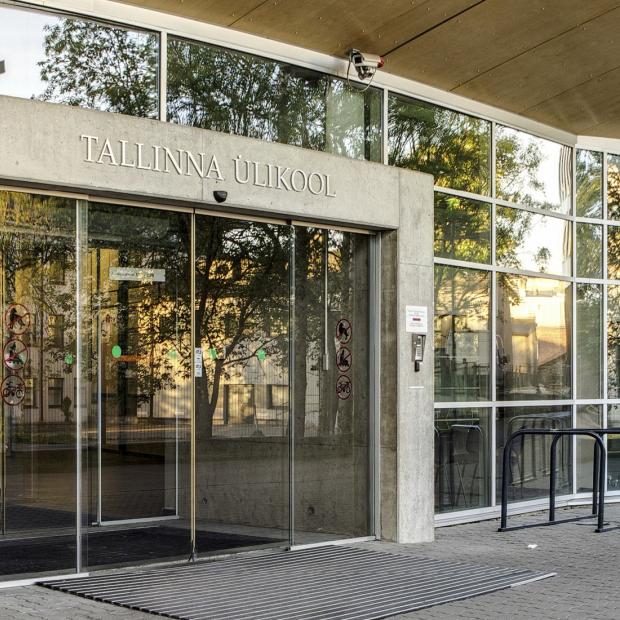Opinion: It would be unhelpful to declare President Putin an irrational lunatic
Benjamin Klasche, SOGOLAS lecturer of Political Science and International Studies, explains why we need to understand the origin of Putin's rationality.

Original article in Estonian: ERR-i uudisteportaalis
There is no such thing as irrational politics. All decisions states and their leaders take are rational; however, we need to free ourselves from the assumption that there is such a thing as a universally understood or valid rationality. This means that every actor in the international arena relies on different rationalities. These can be understood by deconstructing underlying cognitive frames, as I argued with my Tallinn University colleague Peeter Selg in an article published with International Relations in 2020.
I would not have expected that we would find ourselves in today’s situation where we watch Russia’s attempt to invade Ukraine. Perhaps this comes as such a surprise because I have tried to understand the Kremlin’s actions based on what I deem rational.
It is pertinent for us to help the people of Ukraine to fight the Russian aggression. However, proper solutions to problems and conflicts can only be found when we understand the other side's reasons and motivation. Therefore, it would be unhelpful for the analysis to simply declare President Putin an irrational lunatic. From a Western perspective that understands their rationality as universally binding, it is hard to comprehend the impetus of invading Ukraine.
At the core of what we, the West, understand as rational in international politics are two things: Firstly, the need to gain security from existential threats or to make sure that we keep it; and secondly, the need to follow the tenets of neoliberalism as the greatest possible way to maximize wealth and happiness. The invasion does not help with advancing either.
Russia is not improving its security architecture by pushing into Ukraine. The West has already reacted with more fortifications along the NATO border, and this act might also push Finland and Sweden into NATO membership. Furthermore, even if the invasion is successful and Russia holds Ukraine or parts of its territory, its instability will be a constant security threat. We also already see protests on Russian streets from its civil society, which weakens its societal stability.
The invasion is even a bigger catastrophe from a neo-liberalist perspective. Russia will have to face Western economic sanctions, which will undoubtedly impact its potential for economic growth. Furthermore, the costs of war in Ukraine and the potential integration of Ukraine’s territory will cost much more than what could be economically gained. Beyond that, exclusion from many international organizations and institutions will strongly hamper the potential for cooperation with many parts of the world.
What we consider rational is embedded in positive experiences of the past, and it is rational to continue with these activities. This is also an explanation why the Western bloc (particularly the European Union) struggle with imposing stricter sanctions as these would impact their own economies, which goes against neo-liberalist rationality.
At the same time, when something proves to be not useful, we will not continue with it and search for new ways that could be profitable. In that light, there is overwhelming evidence that Russia never managed to transform their economic system in line with the neo-liberalist mantra that would suggest continuing on the path. There was certainly hope in the early 2000s when the relationship with Europe and the West strengthened. Russia took part in NATO exercises, and even membership was discussed. It intensified trade with Europe, and Putin himself suggested that it is the best for Russia to boost economic cooperation with the West and promote the transformation into a neo-liberal market economy.
However, it did not come to this. A small group of Oligarchs still hold most of the wealth, making it impossible for a meaningful middle-class to emerge. Furthermore, the heavy reliance on the export of crude materials such as oil and gas makes it impossible to compete with the West's advanced manufacturing and service industries. It is possible that Russia would have caught up at one point; however, wide-ranging transformations of this kind take time. Unfortunately, Putin has shown not to be willing to wait for this.
Instead, arguable as early as 2007/8, the course has changed. Since then, arguably most political decisions of Russia are related to her aspiration to re-gain Great Power Status. From then on, we have witnessed a return to its imperial roots which resulted in assaults on Georgia, Crimea and Eastern Ukraine and now with the full-fledged invasion of Ukraine. Here one could also suggest that the Cyberattack on Estonia in 2007 can be viewed in this light too. More evidence can also be found in the relationship with regimes in Belarus or Kazakstan, which are seen as subjects to imperial Russia.
For a while now, we found expression of this rationale in Putin’s speeches and the discourse he spreads about Russia and its neighbours. The reconstruction of Russia as a Great Power is based on mythological stories that identify it as Russia’s fate to thrive for this position constantly. Putin also found historical evidence for the theme of Russia as reoccurring empire, for example, in the form of Tsarist Russia or the USSR. To him, the Russian Federation finds itself in this eternal struggle for great power right now.
Other than following the rationality of the West, which has cast Russia in a miserable light of failure, this path has actually led to positive results for Russia and its leadership. Consequently, it makes sense to continue to follow this way. This anti-Western course has proven to be useful as it can be used to hide internal crises and, for now, created a new ally in Bejing that does not share Western rationality either.
What can the West do from here? Quite frankly, I am far from being able to suggest much here. I do know, however, that it is important to acknowledge the reality that the Kremlin thinks in vastly different terms than we do. This means, for example, that the economic sanctions are not as impactful if the suffering side does not view economic cooperation as a rational principle. I do not want to argue that they are not impactful, but they might ultimately fail to bring the desired results. This point is amplified by the circumstance that Russia has foreseen this step and made preparations for it in the last months.
Here, I am also reminded of the tens of thousands of Russian citizens who demonstrate against the war effort knowing that they could experience violence or jail time. It must be clear that Putin’s rationality is not shared by all or even most Russians. It seems that strengthening the Russian civil society could be the most impactful thing to do in the long run. However, this is easier said than done with the Kremlin trying their best to hollow it out.
At this point, if you are looking to help, I will trust the recommendations I have seen from Ukrainians. One option is to donate money to the Ukrainian armed forces. Alternatively, you can support NGOs that work on immediate crisis support. Here in Estonia, that is the Estonian Refugee Council and MTÜ Mondo. Further, take part in local demonstrations against the war and if it comes to that, be prepared to offer support to potential refugees arriving. Please also make sure what sources you are consuming and sharing on the war. There is much misinformation on its way.





